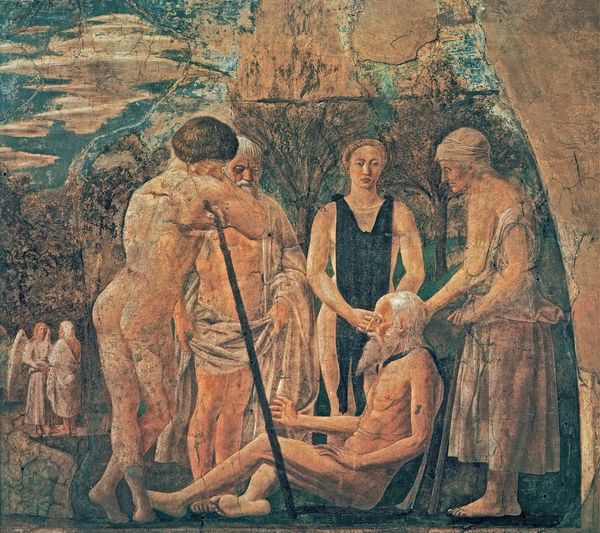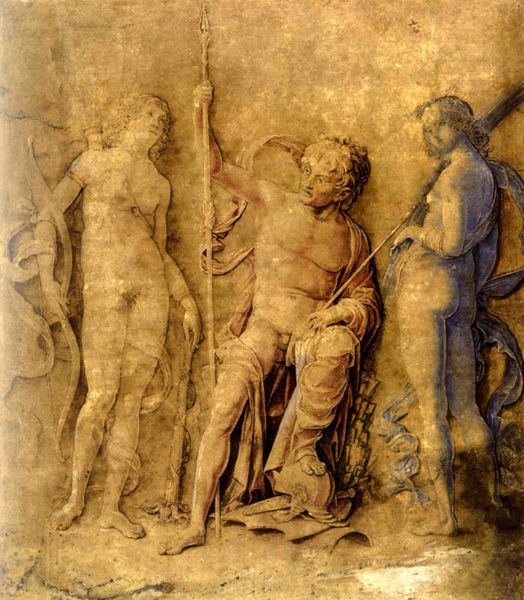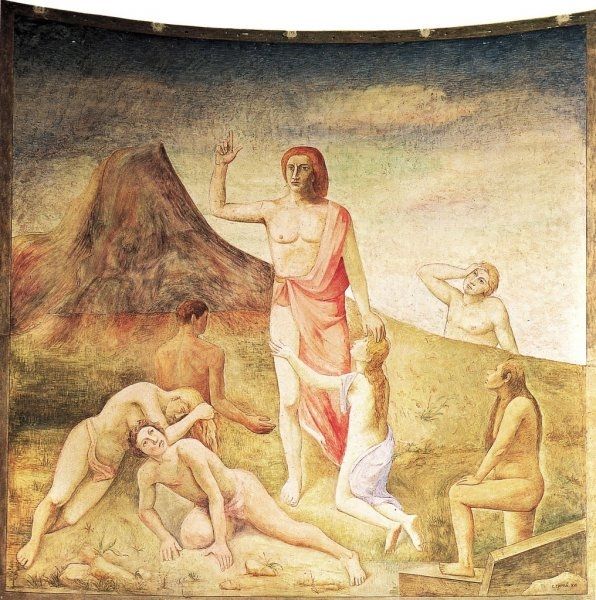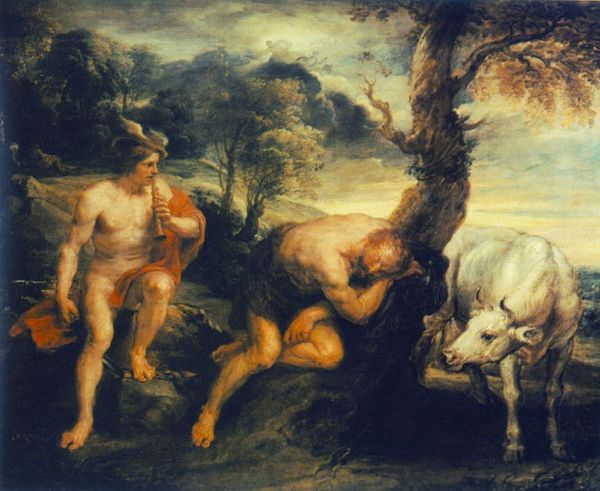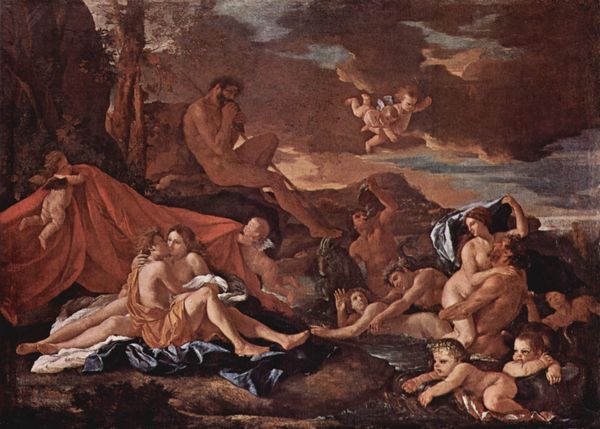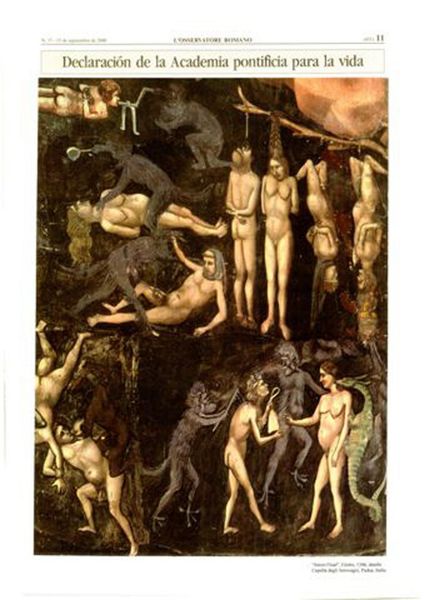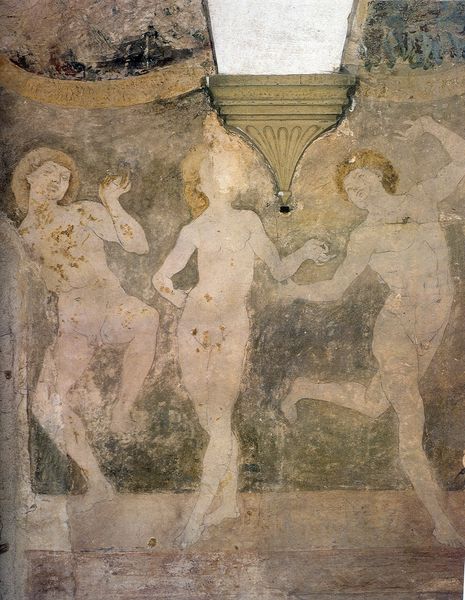
Allegory of May – Triumph of Appolo. Frescos in Palazzo Schifanoia (detail) 1470
0:00
0:00
fresco
#
allegory
#
landscape
#
figuration
#
fresco
#
oil painting
#
mythology
#
history-painting
#
italian-renaissance
Copyright: Public domain
Curator: This is a detail from the “Allegory of May – Triumph of Apollo,” a fresco dating to around 1470 from the Palazzo Schifanoia, created by Francesco del Cossa. Editor: What strikes me is the apparent fragility of the fresco, this panel appears to have aged unevenly which gives it a beautifully decaying mood. It feels both historical and surprisingly present. Curator: Precisely. Del Cossa employs such precise linear perspective, but the pigment choices also dictate how the surface degrades and appears centuries later, layering our visual engagement. Editor: You can clearly see how the pigment was worked. Consider the layering, almost like sedimentation in the earthy backdrop that isolates each figure within their own material bubble. Were particular pigments costly here? It does not immediately seem as elaborate as it could be, or should we attribute that to the natural degradation that these pigments may undergo? Curator: While vibrant for its time, the limited palette speaks to the fresco technique, where mineral pigments are applied to wet plaster. There's a flattening effect, a conscious move away from hyperrealism, pushing towards symbolism and idealized representation, typical of Renaissance allegorical depictions. It appears to me that azurite has held on best throughout the passing centuries, whilst ochre, and especially the whites and skin pigments are deteriorating, leading us back to those earth tones in a somewhat ironic turn. Editor: It is intriguing to think about how these earthly materials are so important to interpret its intrinsic nature in parallel to its historical intention. In effect the earthly origin of the used materials comes back, both defining what this artwork means, and what its appearance should mean to a viewer hundreds of years into the future. Curator: Absolutely. By considering form and composition, we decode a deliberate choice to create a dream-like narrative using ancient themes through modern, that is, Renaissance, methods and application of materiality. Editor: Viewing "Triumph of Apollo" really brings forth the complex dialogue between the labor, the intention, the physical makeup and the story it seeks to portray through carefully selected elements and allegories. The fresco-making is right at the heart of that.
Comments
No comments
Be the first to comment and join the conversation on the ultimate creative platform.
